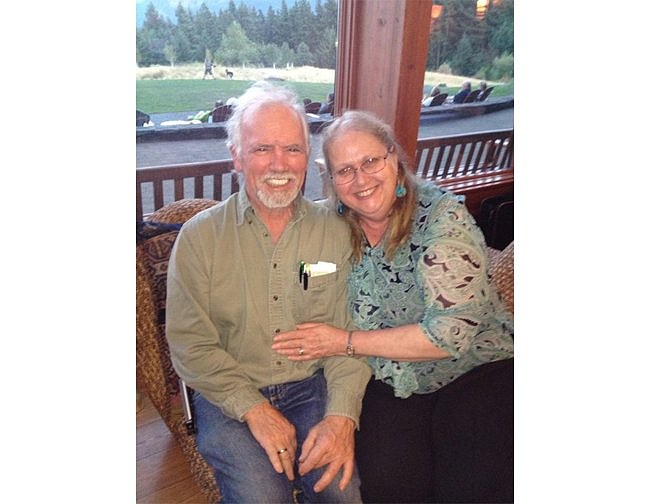Dating Violence Affects Seniors
February 16, 2015 at 10:36 a.m.
February is Teen Dating Violence month, and it's a good thing that people are becoming more aware of this pervasive problem. But dating violence is not just an issue for teenagers - it can affect people of any age who are in a romantic or intimate relationship. Dating violence involves a range of controlling and abusive behaviors, from verbal put-downs to physical harm or sexual coercion. It is major risk factor for anyone at any age. According to the Centers for Disease Control and Prevention, more than one in three women and one in four men has experienced rape, stalking, or physical violence from an intimate partner in their lifetime. While most survivors' first abuse experiences are in childhood or early adulthood, older adults are certainly not immune.
One of the confusing aspects of dating violence is that the people who commit these heinous acts are often quite charming and convincing early in the relationship. They may be experts at "grooming," which is the process of winning a person's trust for the purpose of establishing control. Older adults, like teens, may be vulnerable because of loneliness or lack of experience in dating (for example, someone who has recently been widowed or divorced and is not used to the "dating scene").
Abuse can begin on a first date, or it can emerge over time as the relationship develops. While others often ask why victims stay with abusers, the more relevant question is why do people abuse those they are supposed to love and care for?
Dating violence can be even more complex for those in middle age or their senior years than for teens. In some situations, the abuser may also be a caregiver. Older people may be more likely to have financial and family ties to their abusers. They may also feel humiliated by having others in the community learn about their situation.
While there are "red flags" for abusive relationships, which we have discussed in previous columns, there is no sure-fire way to identify an abuser in advance. There are some important points that are relevant at any age:
Trust your instincts. If you find yourself making excuses for your partner or arguing with yourself about whether he or she is trustworthy, listen to your inner voice.
Make sure you understand that controlling behavior is NOT a sign of love and affection - it is a sign of potential abuse. If your partner is abnormally jealous, doesn't want you to see your friends or family, or tries to dictate your actions or whereabouts, these are danger signs.
Active alcoholism or drug abuse may contribute to abusive behavior, but they don't cause it or excuse it.
Even if you have been victimized before (as a child or in previous relationships), don't blame yourself. The abuser has the responsibility for violent or disrespectful actions.
If you find yourself behaving in a violent or disrespectful way, seek help.
A formerly loving partner who suddenly begins to be violent or to act irrationally may be suffering from a medical problem. It is important to rule out medical causes for abrupt behavior changes.
It is human nature to avoid or minimize complex problems. When you love or care about someone who is also hurting you, you may try to rationalize your partner's behavior. Remember that people can and do die from abuse. They may also be in danger when they try to leave an abusive partner, so getting help with safety planning is crucial.
People may stay in abusive relationships because of fear or embarrassment. Getting in touch with a program that deals with physical or sexual violence can help with both safety and self-confidence. There are free, confidential services in almost every community. Call the National Domestic Violence Hotline at 800-799-7233 or the RAINN (the sexual assault/abuse hotline) at 800-656-HOPE for advice and to connect with a local advocacy program.
And yes, teens are affected by relationship abuse (a better term than dating violence, since they don’t use the word “dating” and they don’t always realize that sexual abuse and coercion are forms of violence). Educating yourself about this issue will help you to keep yourself, your friends, and your children or grandchildren safer. You can play an important role in social change by talking to young people about respectful and kind relationships, and by showing them through your own life example.
Northwest authors Jennifer Y. Levy-Peck, PhD, a psychologist, and her husband Charles Peck are write a weekly column on midlife relationships. They are working on a new book, "Magic at Midlife: Your Relationship Roadmap for Romance After 40."
Previous Magic at Midlife Columns:
Ten Questions to Deepen Your Relationship
Courage to Date in the New Year
Friends and Lovers: A Balancing Act
The Power of Small Caring Behaviors
Reimagining Your Life Together
Memory Loss and the Midlife Couple
Money - One Pot or Separate Accounts?
Conversations About Death for Midlife Couples
Your Place or Mine? Moving In Together
How to Help Your Partner Calm Down
Having the “Senior Safer Sex” Conversation





